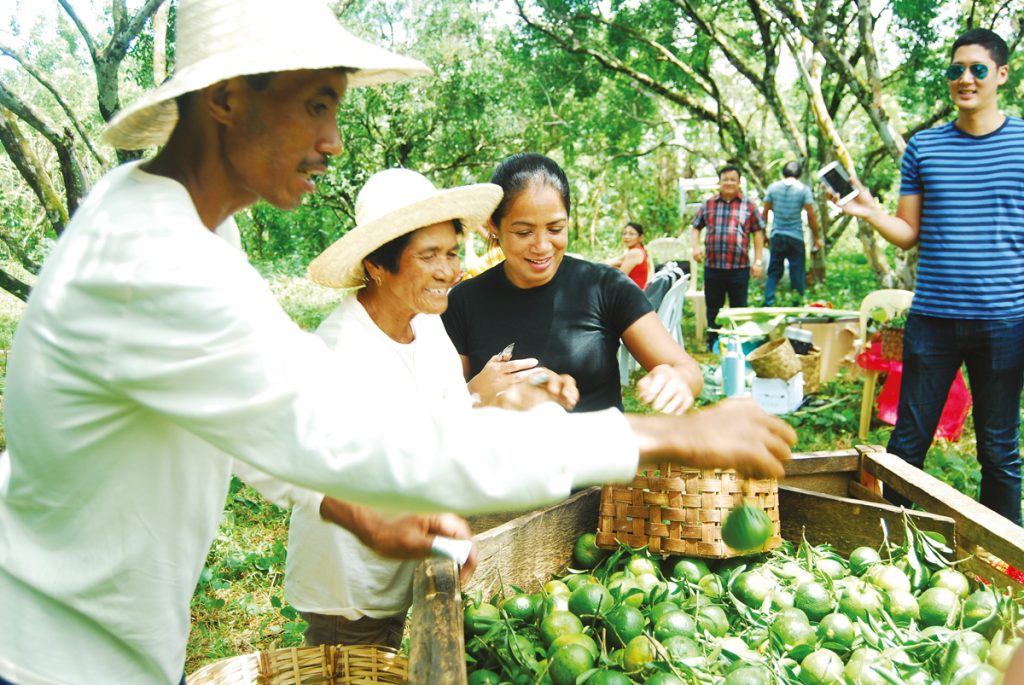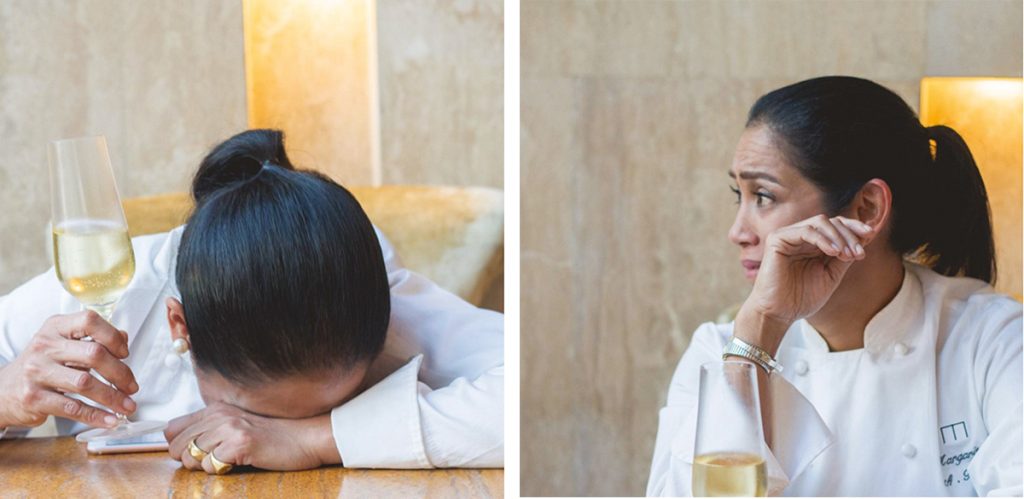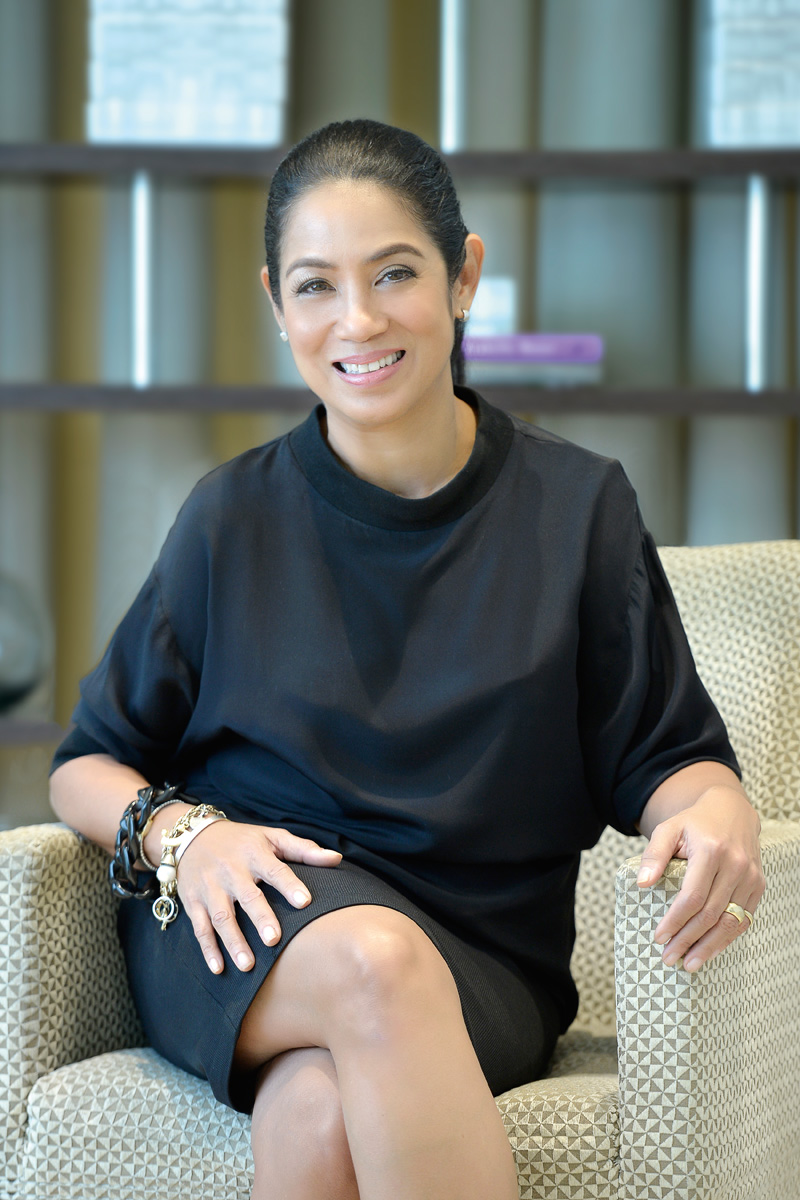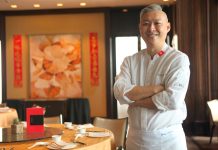Last Feb. 11, 2025, Philippine and international culinary circles were shocked at the sudden passing of restaurateur and food maverick Chef Margarita “Gaita” Araneta Forés at age 65. As tributes pour in, Asian Dragon brings back our coverage of her accolade in 2016, and her memorable collaboration with Destileria Limtuaco in coming up with a truly Filipino liqueur. The firmament of flavors is less brilliant with the loss of the inimitable Chef Margarita.
A singular honor
Chef patron Margarita Forés knew there was a small event scheduled mid-January 2016 at Lusso, her gastrobar and lounge at Greenbelt in Makati, but she had no idea until that morning that she would be the recipient of stunning news.
By the time it was announced to select members of the lifestyle press present that she had been chosen Asia’s Best Female Chef 2016, Forés, who was standing nearby, was near tears.

The shock and excitement were warranted. After all, this was only the fourth time the award had been given, and the first time a Filipina chef has been chosen.
That morning, Forés had been invited to meet key people behind Asia’s 50 Best Restaurants, an influential group of over 300 leaders in the restaurant industry across Asia. The meeting was an elaborate ruse that culminated with a video showing her initial disbelief, followed by palpable joy.
The recognition couldn’t have come at a better time. In 2016, Forés marked her 30th anniversary in the food industry. She first developed an appreciation for authentic Italian cuisine while on a tour of Italy in 1986. While there, she immersed herself in the local culture, developing what would later become her culinary style of cooking with only the best local ingredients.

The following year, in 1987, Forés founded Cibo di M, a catering business that put together memorable banquets and customized service for high-profile clients. A decade later, in 1997, she opened Cibo, her first Italian restaurant that has since become a hugely popular chain with several outlets around the country.
She also branched out with other restaurant concepts, including the aforementioned Lusso, a luxe champagne and gastro bar, and Grace Park, an ingredient-driven Italian restaurant specializing in farm-to-table cuisine.
Since 2006, the petite chef had also been passionately championing locally sourced organic produce from small, provincial farmers. Although she was best known for her Italian cooking, she was also a proud advocate of Filipino cuisine. In 2008, she co-authored Kulinarya: A Guidebook to Philippine Cuisine that has been updated and reprinted.
Forés and respected chef Glenda Barretto also prepared dinner for 700 guests and delegates at the 2015 welcome reception of the Asia-Pacific Economic Convention (APEC) held in Manila. Forés said they wanted to showcase the uniqueness and diversity of Philippine ingredients.
“All these microgreens and herbs that we’ve taken for granted—that we thought were just weeds in the garden—are things that very important restaurants abroad have highlighted,” she said, explaining her use of lowly vegetables like alugbati (Malabar spinach) and sigarilyas (winged beans) for the APEC dinner.
As founder of Casa Artusi Philippines and a believer in one of the Artusi principles of “using only the best ingredients wherever you are,” she began conceptualizing a food promotion in Manila. Forés worked with Patsy Abad, her former intern and now the person in charge of Cafe du Tukon in Batanes.
The menu at Grace Park included Uved Soup made with banana corm (root) mixed with flaked flying fish, minced pork, garlic, and garlic leaves; grilled farm-fresh vegetables like eggplants, tomatoes, leeks, and garlic topped with coconut cream and cane vinegar; dibang or day-old flying fish served with rice and a fried egg; and—more interestingly—luñis, organic pork salted and cooked in its own fat until the fat is rendered. The dry adobo was served with turmeric rice, an Ivatan specialty served only to favored guests.
It was this passion that caught the attention of The Diners Club Asia’s 50 Best Restaurants Academy, creator of Asia’s 50 Best Restaurants. “Margarita Forés is a worthy recipient of the Asia’s Best Female Chef Award,” William Drew, group editor of Asia’s 50 Best Restaurants, said in a statement. “As a true leader in her country’s restaurant sector, her dedication, culinary skills, and pioneering efforts have elevated the dining scene in the Philippines and set a new benchmark for other chefs and restaurateurs to follow.”
After her lavish banquets for celebrities and high-profile personalities, including His Royal Highness Prince Andrew the Duke of York, and the King and Queen of Spain at the Palacio Real del Pardo in Madrid during the state visit of former Philippine President Arroyo in 2007, more people have become interested to sample Filipino fare.
“I think the heavens have been conspiring for the last three years,” Forés said then. “Now is really the time for Philippine food to shine.”
A big heart—and a bigger advocacy
Forés’ advocacy of championing local produce had constantly been at the forefront of her career. Her work with smaller farmers started around 2006, when she started to look for alternatives to fresh Italian tomatoes. “I started to work with farmers who were growing them hydroponically, a method of growing plants using mineral nutrient solutions in water, without soil,” Forés recalled. “It was also around the time I developed thyroid cancer. When you’re stricken with that kind of sickness, your whole lifestyle and choice of food change. So I started looking for healthier alternatives, and found all these organic farmers.”

One of her first collaborations with local farmers was when she started sourcing kalabasa (squash) from Bacolod, bringing it to the city center by roro (ferry). Moving forward, the farmers she was working with then started to expand their repertoire based on what they could use.
“When people realized I was working with the farmers then, many people started introducing us to other farmers. And for these suppliers to survive as farmers, we introduce them to other chefs and restaurant owners, and that widens their market,” Forés said. “So that’s how it started—more from a personal challenge, and then it became an advocacy. It was the infectiousness that you were able to create in the industry.”
Two results of her advocacy are her work with dalandan and adlai. “I think one of the more important ones that we pushed together with the Department of Agriculture is adlai, which is Chinese pearl barley, which grows bountifully in areas where rice doesn’t grow very well,” Forés explained.
As the chef who introduced the grain to the industry, she was able to influence more chefs to get interested, and a steady demand grew for the rice alternative. “Because of the number of chefs and restaurants that are requesting it, the price is going up. That means it’s affecting the farmers in a good way.”
She also worked with the country’s oldest distillery, Destileria Limtuaco, to create a vodka-based liqueur using dalandan sourced from Mindoro. Destileria Limtuaco’s president, Olivia Limpe-Aw, revealed that it was actually Forés who pitched the idea of making a dalandan version of the company’s signature Manille Liqueur. The company’s thrust of highlighting local flavors and products was so much in line with Forés’ advocacy that she became Manille Liqueur de Dalandan’s brand ambassador.
Together with the Destileria Limtuaco team, Forés made her way to Mindoro to meet with the farmers of the cooperative producing dalandan. The people who accompanied the chef shared how much appreciation she had for the farmers, how she sat down with them and asked about every step of the process, and how she was immensely excited about their harvesting tool (a hand tool called panguko), such that she even suggested they patent it. Expanding on the exploration, Destileria Limtuaco has since launched its “Si” line of handcrafted dalandan and calamansi face and body soap.
“Going there made us understand that when you remove one step between the farmer and the user of his product, you really help the farmers a lot,” Forés stated. “It really follows my advocacy of promoting our small farmer and the produce that people take for granted, things that we think are only probinsya fruits or probinsya produce—but actually introducing them to foreign chefs or to the foreign market.”
For a global audience to take notice, it means that local chefs are doing something right, Forés concluded. “It’s not only the work I’ve been doing for myself, but also the work I’ve been doing with my peers, which is trying to bring Philippine produce forward. I think that’s the bigger mission. The win is not just for me. It’s for our whole country.”



































